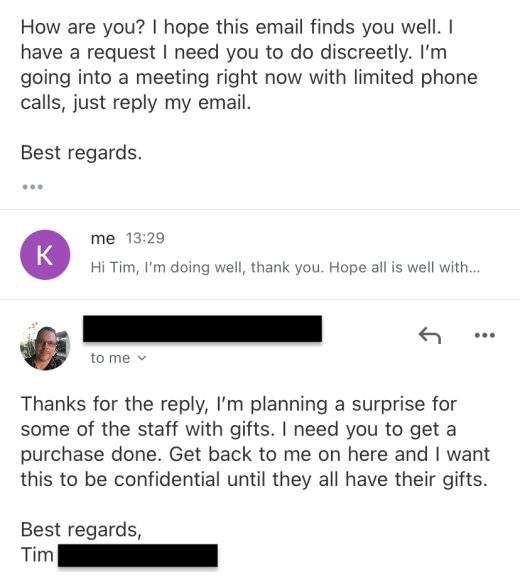We have reports from faculty and staff who have been recipients of a new twist on an old e-mail scam. These phishing scams often come from a non-UCLA email address with poor spelling/grammar.
Please see examples below:


- Verify the senders address / do not respond to the scammer. In every case, the scammer is using a non-ucla.edu e-mail account with a look-a-like display name for someone on campus. Verify the senders e-mail address.
- Why are they asking me to do this? Why didn’t they simply ask their administrative assistant?
- Regularly visit The Phish Bowl. You may find that someone else may have received this very same ‘important’ request.
- Ask for a second opinion, report the Phishing Scam. The message will be reviewed, and someone will follow-up with you if any additional action is needed. Where appropriate, the scammer e-mail address will also be blocked on the campus e-mail servers.


